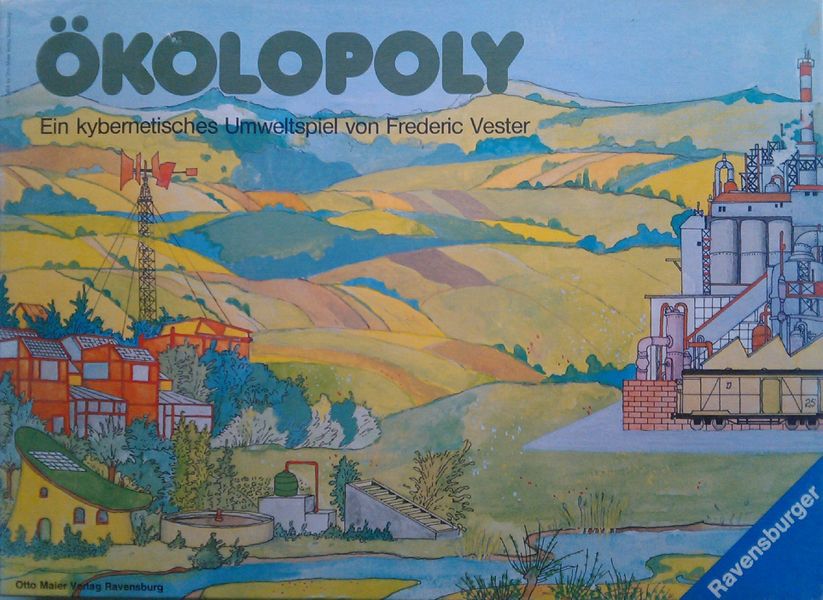Ökolopoly (1983) Board Game
Ökolopoly is a German board game that was released in in 1983. Designed by Peter Schimmel, the game focuses on environmental and economic themes, making it both educational and entertaining for players. With artwork by Otto Maier Verlag and Ravensburger, Ökolopoly has become a classic in the city building and economic board game genre.
Game Components of Ökolopoly
How To Setup Ökolopoly
To set up Ökolopoly, players first choose between the two scenarios: “Kybernetien” (an industrial state) or “Kyborien” (a nomadic and developing country). Each player takes on the role of the government of their chosen scenario. The game board is laid out, and the dials are set to their starting positions. Players receive a set amount of “Aktionspunkte” (action points) which they will use to make decisions throughout the game. The round counter and event cards are placed within reach.
Gameplay Mechanics and Game Objective
Player Experience
Playing Ökolopoly requires a deep understanding of systemic thinking and the ability to manage complex feedback loops. Players act as decision-makers in politics and economy, trying to steer the system towards sustainability. The game is designed for one to six players, but it does not support competitive play; instead, players must collaborate to achieve the game’s objectives. The game fosters learning about the interconnectedness of ecological, economic, and social systems, teaching players to anticipate the long-term consequences of their decisions.
Pros
Cons
Personal Thoughts on Ökolopoly
Ökolopoly is ideal for those interested in environmentalism, economics, and sociology, particularly educators and students. It serves as a powerful tool for teaching systemic thinking and the consequences of decisions in a complex, interconnected world. While it may not be the best fit for casual gamers due to its complexity, it is a valuable resource for anyone looking to understand and manage sustainable development.
We are supported by our audience. When you purchase through links on our site, we may earn an affiliate commission, at no extra cost for you. Learn more.

